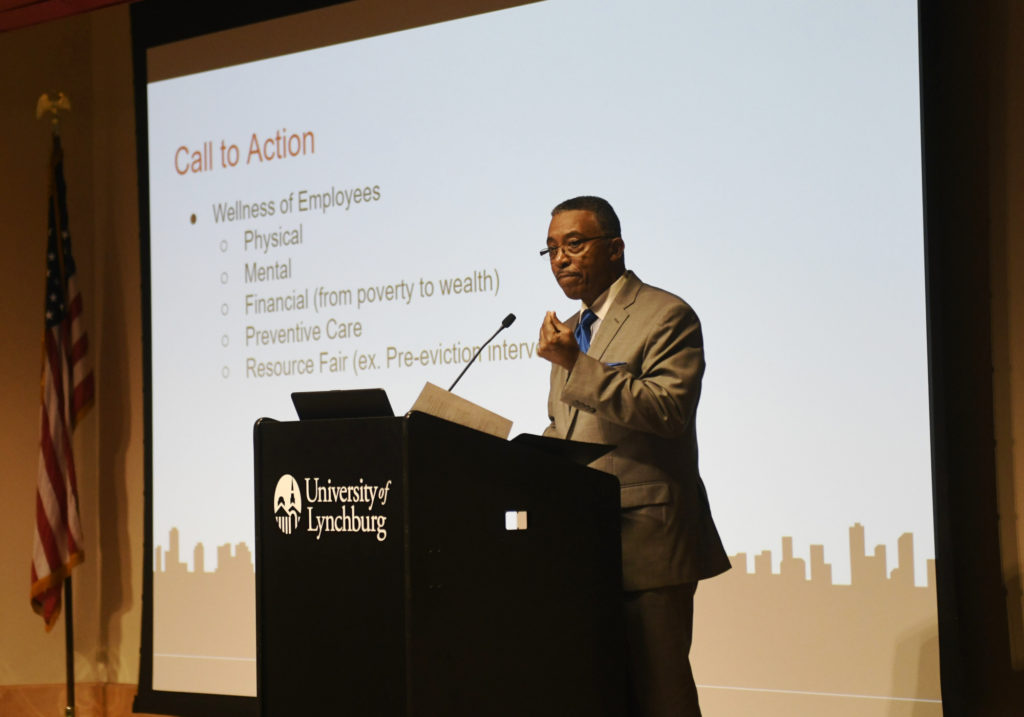Leaders from Central Virginia businesses and nonprofits met at the University of Lynchburg for a community conversation on homelessness Monday.
Nat Marshall ’83, chair of the University’s Board of Trustees, spearheaded the event to help business leaders understand issues surrounding homelessness so they can make changes to help ensure fewer people experience homelessness. The University’s Center for Community Engagement organized the event along with several nonprofit groups.
Statistics show that homelessness has decreased in the Lynchburg area — by more than 70 percent for families, youth, and veterans. But there is still work to do, local leaders, including University of Lynchburg alumni, said.
“As long as we have one person out there who is homeless, we’ve got a job to do,” Marshall said.
Treney Tweedy ’97, mayor of the City of Lynchburg, pointed out that most people attending the event were aware of homelessness. “For a long time we’ve known about this issue. We’ve talked about this issue. And now it’s time to act on this issue,” she said. “We are better as a community when we work together. We are better as a community when we collaborate our resources, our agenda, our time, and our efforts to meet the needs of the persons who are most vulnerable in our community.”
Clay Coleman, a local businessman, spoke about his journey from a concerned citizen to a passionate advocate for the homeless. He recently visited many local nonprofits that help people who do not have homes or are at risk of losing them. He told the audience that nonprofit groups are already doing great things, but businesses can collaborate to make the work more effective.

The Rev. William Coleman ’81, president of Lynchburg Community Action Group, spoke about ways businesses can help, ranging from inclusive hiring practices that would allow convicted individuals to get a new start, to employee wellness programs, which could help people maintain the health they need to stay employed.
The meeting closed with discussions among the participants about how they could work together to reduce homelessness further.
“We don’t need one more slogan. We don’t need one more phrase. What we need is action,” Coleman said. “We need to take very specific steps and say this is how we’re going to move forward. …
“At the end of the day, when we change our community, we really change our own lives and we make everything better for a lot of people.”
The Center for Community Engagement website includes a list of partner organizations that work on housing security, where students are encouraged to volunteer.
The event was covered by The News & Advance, WSET, and WFXR.

